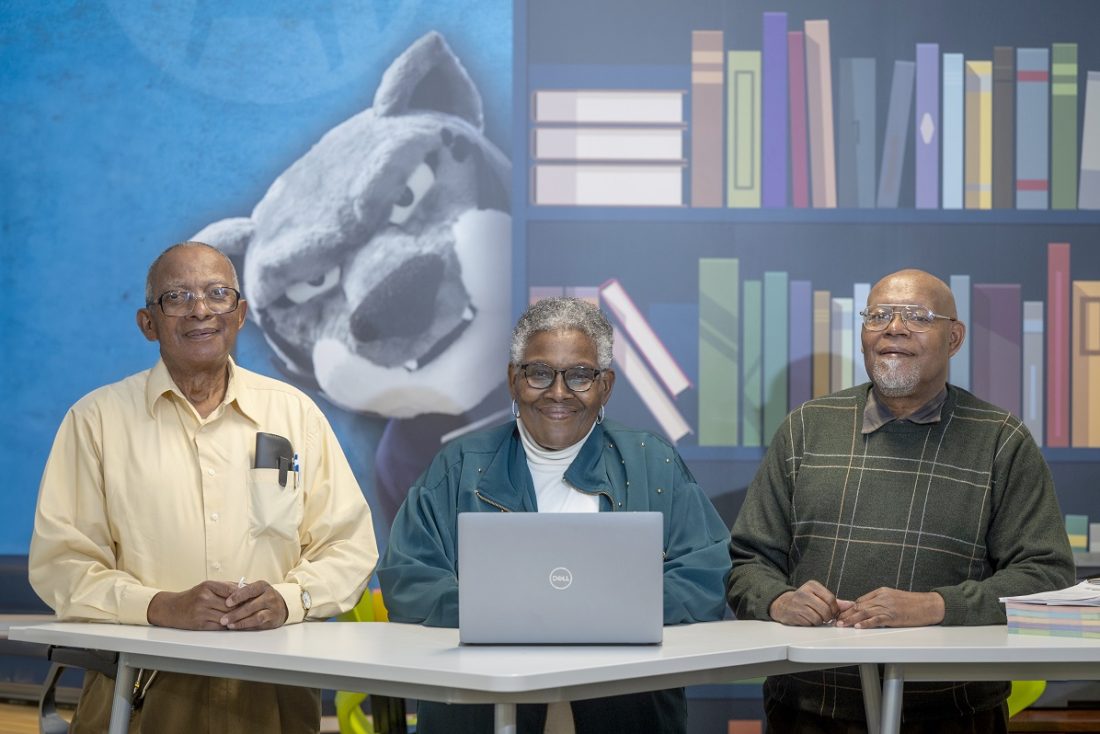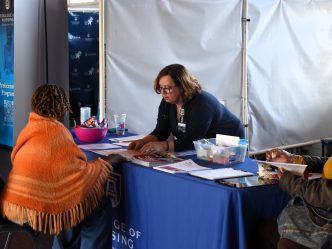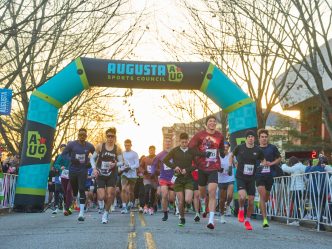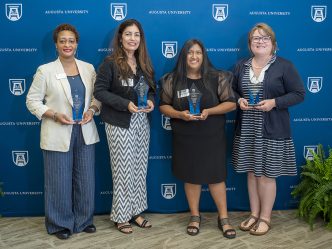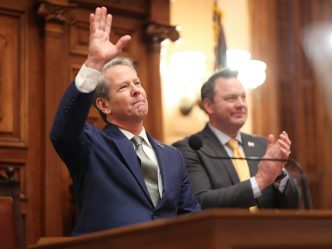When the Dr. Paulette P. Harris Literacy Center at Augusta University was founded 33 years ago, its primary mission was to focus on helping adult learners. Over time, that mission expanded, but helping adults interested in advancing their education remains a major priority.
Fast forward to the present day and the strategic placement of the literacy center at the Hub for Community Innovation in the Harrisburg neighborhood, the original mission of engaging the local community is on full display.
Betsy VanDeusen, PhD, director of the Literacy Center, said after the move to the current location, they had to gradually work their way back up to where they could fully engage and help adult learners. There are currently 15 they assist on a regular basis.
“We wanted people to come here and realize the services we have. We took digital literacy as a viable way to work with folks.”
Betsy VanDeusen, PhD, director of the literacy center
Three of the most consistent adult learnings are the Butler family. Linda Butler and her brothers Jacob and Glenn are weekly visitors, taking advantage of the Literacy Center’s programs to enhance their computer literacy. They have lived in the neighborhood for nearly 50 years and were interested in the center before it officially opened its doors.
“She (VanDeusen) told us about all of the programs that were going to be here, and we were totally interested in the computer program, and all the programs that they have,” said Linda Butler.
Once all the pieces were in place, VanDeusen called the Butlers and told them the staff of the Literacy Center was more than happy to assist.
The Butlers are part of the older generation where computer skills might not come as easy as it does to younger generations. They saw the potential of the computer program and knew they wanted to tap into a new world that could be at their fingertips.
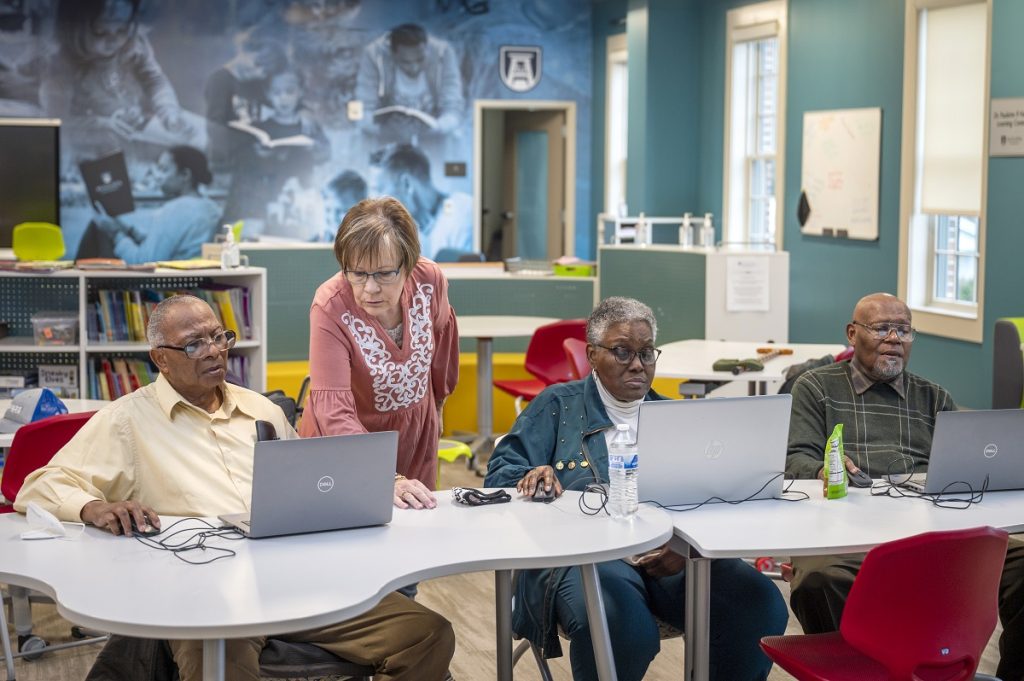
In the beginning, Glenn Butler was simply interested in the basics, particularly typing.
“I wanted to learn to type, ever since high school,” he said. “Back in the old days, I was working at night and going to school. I was limited in some of the classes that I took.”
His typing proficiency has improved, as well as his computer skills, since making regular visits.
Linda Butler had the most computer knowledge of the family but still returns to expand her boundaries.
“There are so many things to learn from the computer, so I’m learning more and more. I’m in different ministries at my church, and I can do things now that I couldn’t do before,” she added.
“It’s really exciting to me because I’ve heard so much about computers and was tempted to learn how to operate a computer. I came in and started, and it was exciting,” said Jacob Butler.
Sharon Arnold, a retired teacher, is a volunteer tutor at the Literacy Center and has been working with the Butlers for quite some time now. She began by teaching the basics and slowly and patiently began to expand upon the knowledge they already had.
Arnold has also noticed their different interests and has gotten as much joy in teaching them new skills.
“With Jacob, I think finding the Lucy C. Craft Laney High School website has been just something he loves,” said Arnold. “Linda is a lot different. She’s my main student and is a little savvier with computers and a little more interested in it. So she has more questions and more challenges for me, which is wonderful. Glenn has his sports that he loves and went and found the apps or sites, and it’s been great.”
VanDeusen said the center had time to review best practices for adult learners when they moved to the current location. What the staff found was that everything should start with the learner’s own goals. For some, it’s learning to read better; for others, it is learning more about computers.
“We want people to come here and realize the services we have,” said VanDeusen. “We took digital literacy as a viable way to work with folks.”
The Hub, along with the neighboring Boys & Girls Club of Greater Augusta, is also a connected learning center with AT&T, part of the founding partners at the Hub. AT&T has equipped the building with high-speed fiber internet and continues to offer more services.
“One of the programs they make available to us is this whole digital literacy program. It provides modules we can use with the Butlers – anything from a web search to email to safety. So we had all those materials to use,” said VanDeusen.
The impact the Literacy Center has had for not only children but also adults has been immeasurable, according to VanDeusen. The Butlers are a prime example of that.
The Butlers asked if there was an end date for the program they are currently taking. They were told no, and they are welcome to keep coming back.
Linda Butler said she enjoys seeing the younger students come in later in the day, knowing they will be better off after spending time in the center.
“The children that are being served here, I love that, because they’re being tutored in reading and whatever else they need,” she said. “I see the children coming in during the afternoons and learning, and that’s a good thing.”
 Augusta University
Augusta University
